Create a New Local Cache
This page details how you can create a local cache through the NCache Management Center or Command Line Tool such as PowerShell.
Prerequisites
Make sure the NCache Service is started. If it is not, do the following:
- For .NET, type the following command in any Command Line Tool of your choice (run as admin):
Start-Service -Name NCacheSvc
- For .NET Core, make sure that you run the NCache Service as an administrator. Here are the steps to do so:
- Open the Services window and look for NCache in the list.
- Right click on NCacheSvc from the list and choose Properties.
- Go to the Log On tab and click on the Browse button.
- In the object name field, type Administrator and click on the Check Names button.
- It will pick the appropriate Administrator, then click OK.
- Now, set a Password and click OK.
- Right click on the NCache Service and choose the Restart option. Now your service will start running as administrator.
Using the NCache Management Center
Launch the NCache Management Center by browsing to http://localhost:8251 or
<server-ip>:8251.In the left navigation bar, click on Local Caches. This opens up the Local Caches page. It shows any existing local caches on your machine and additional details like Server and Server Platform.
To create a new local cache, click on New.

- Specify the Server Node IP / Name and click Next.
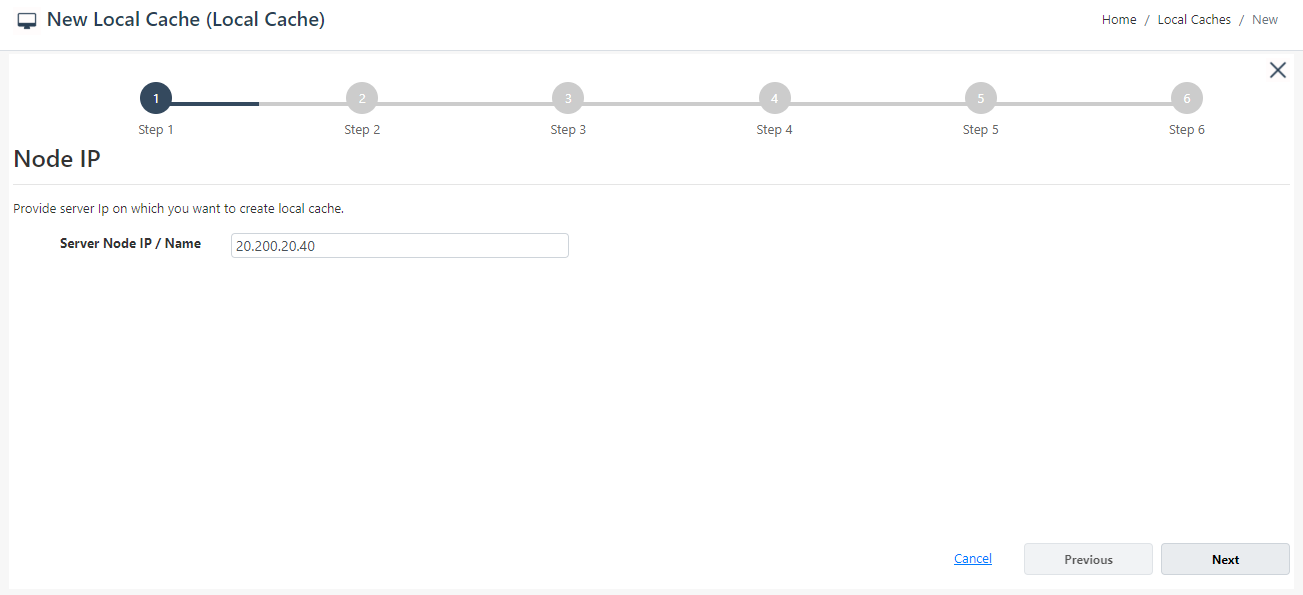
- Specify the In-Memory Store Type as Local Cache from the dropdown menu. Afterwards, specify the Name, Isolation Level, and Serialization (Binary or JSON) of your cache. Click Next.
Warning
If a cache already exists against the Name specified, you are prompted with an error message.
Note
As a recommended approach, use JSON serialization if you are using ASP.NET 5.0 and above. For more details, click here.
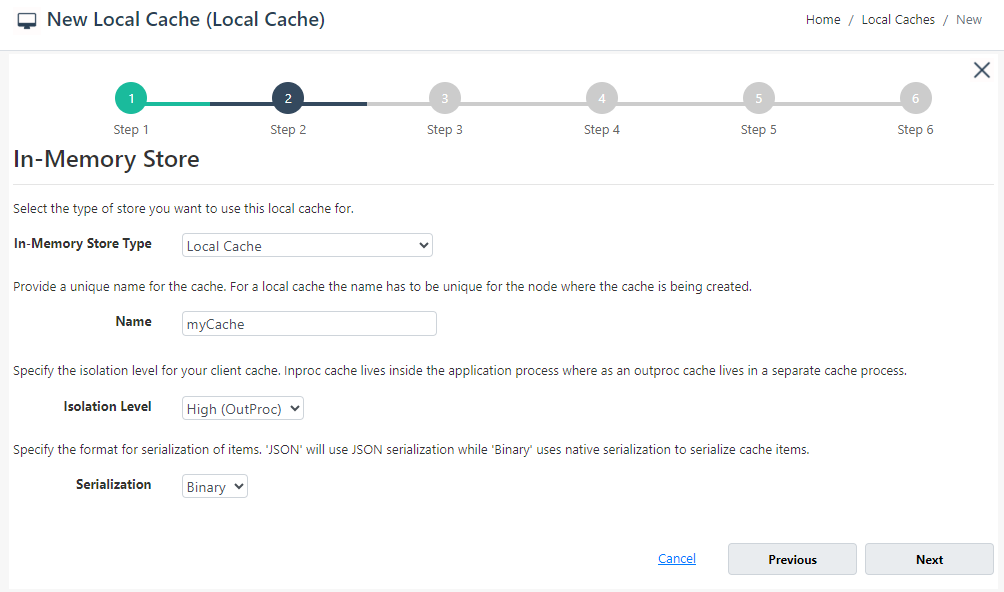
- Change the Cache Size if required, and click Next.
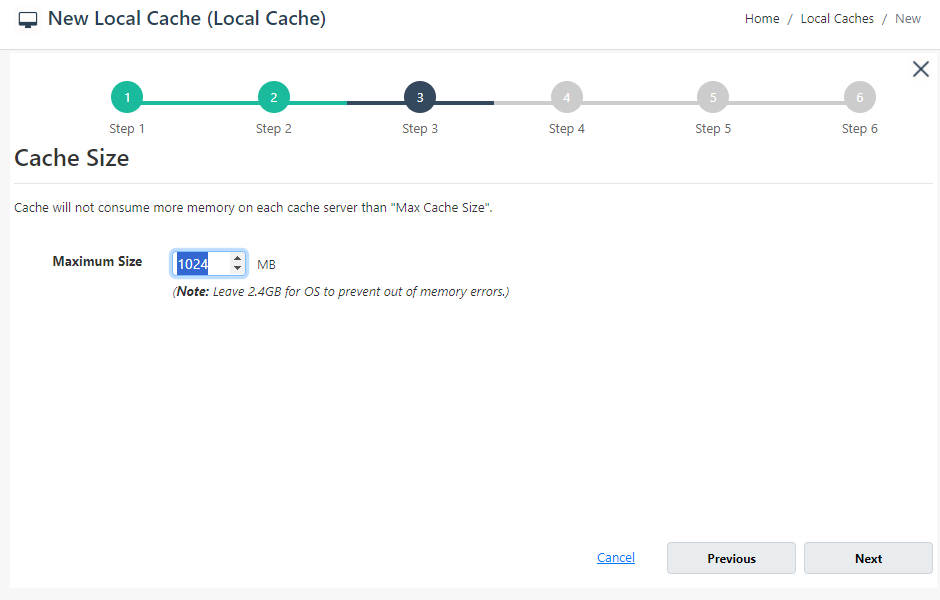
- If you want to enable encryption and compression, check the Enable Encryption and Enable Compression checkboxes. If enabled, set the Providers and Key for encryption and Threshold Size for compression. Click Next.
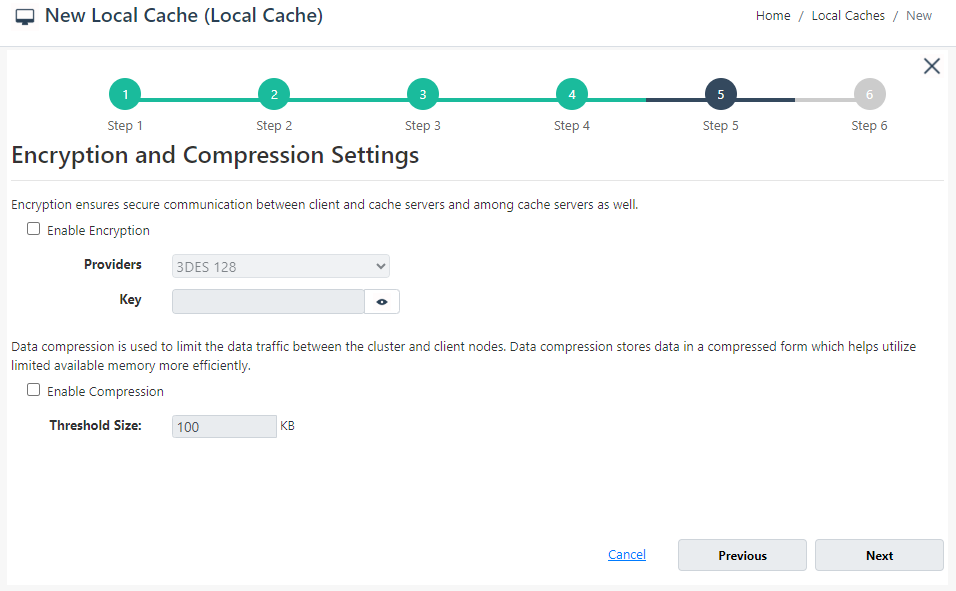
On Advanced Options page, you can configure the following settings:
Eviction is enabled by default. You can configure the Eviction Policy accordingly. If you want to disable eviction, unselect the checkbox Enable Eviction.
You can also change the Eviction percentage; items will be evicted from the cache using this percentage value if eviction is enabled.
You can change the Clean interval value. The default value is 15 seconds.
This cache can be started automatically upon the completion of this process if you have selected the Start this cache on finish checkbox on this dialog box.
You can make the cache start automatically after service restart by selecting the Auto start this cache on service startup checkbox.
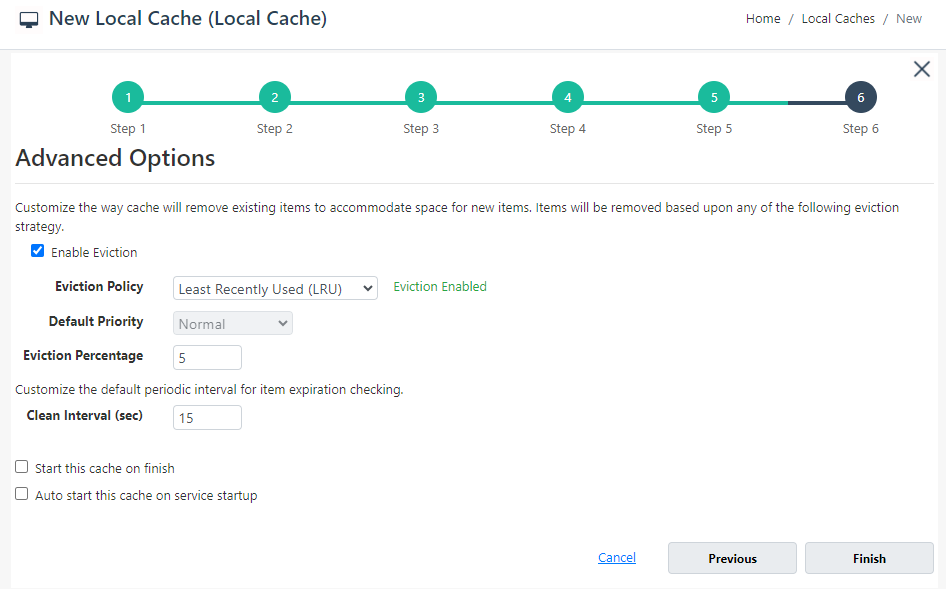
- Click Finish. The created cache will appear on the Local Caches page, and a success notification will be received in the notification panel.
Using Command Line Tools
The New Cache tool enables the user to create a new cache on one or more server nodes.
- This command creates a new local cache named demoCache on server 20.200.20.40 with size 1024 MB and uses Local topology since no topology is specified.
New-Cache -Name demoCache -Server 20.200.20.40 -Size 1024
- This command creates a new local cache named demoCache on server 20.200.20.40 having the size of 1024 MB, with the configuration that exists on the specified path.
New-Cache -Name demoCache -Server 20.200.20.40 –Path C:\config.xml
See Also
Add Existing Cache
Create Clustered Cache
Remove Cache
Clear Cache